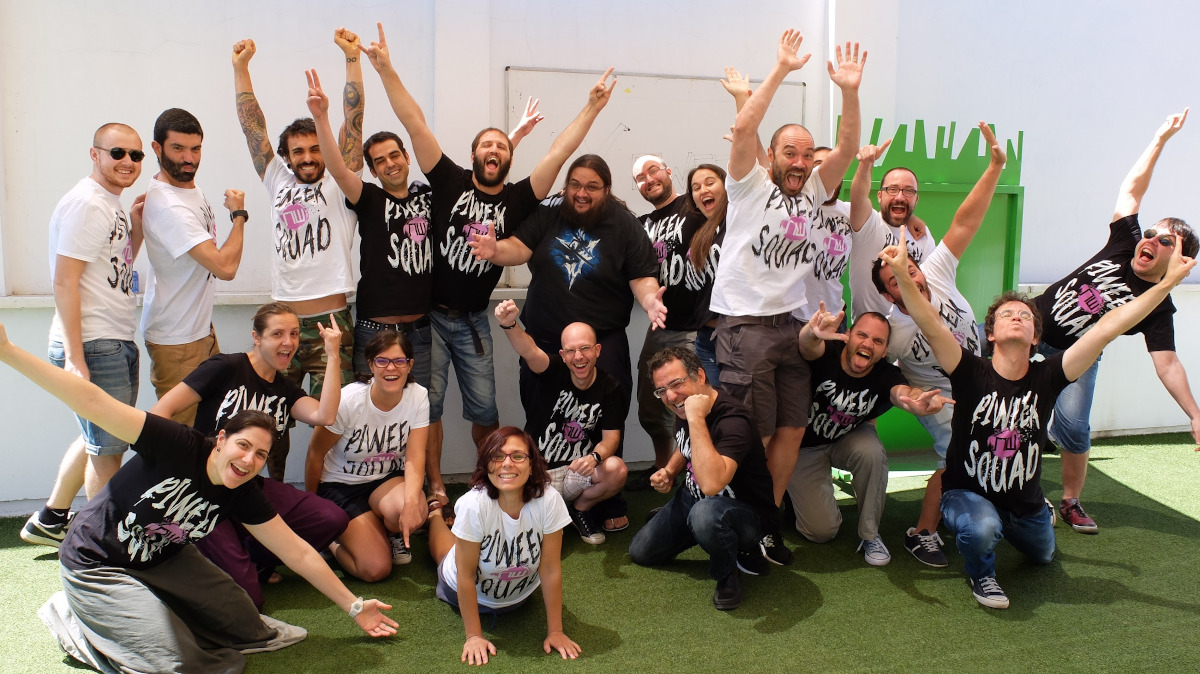There’s a widespread fallacy that appeals to humanity enjoying evergrowing progress. We look at the past with a patronizing attitude but if we were to be critical thinkers we would admit that progress doesn’t occur magically just by the passing of time, you have to work hard for it.
The Why
As I said before, progress shouldn’t rely on chance alone, you have to earn it. But not all progress is created equal. We have an agenda, we pursue a better society and we want to work towards it. Now, just optimizing the current model is not a huge motivator for us. We want to do more, one could even go as far as to say that we need to do more.
So this is our little secret here, we invest precious time and resources to innovate so we have a say in the future collective progress. It might sound a bit selfish in the sense that we want to push our agenda forward, true, until you realize that everything we are based on and we publish is open. We acknowledge the shoulders of giants we’re resting upon thanks to Free & Open source software and content and so we contribute back to the community.
This has a very convenient side effect beyond knowing our work matters, it allows us to stay ahead of the game. Our entrepreneurial initiatives or digital product partnerships are most likely to be successful. Actually, to this date, we have a >97% deadline fulfillment and only an overall +4% average budget deviation.
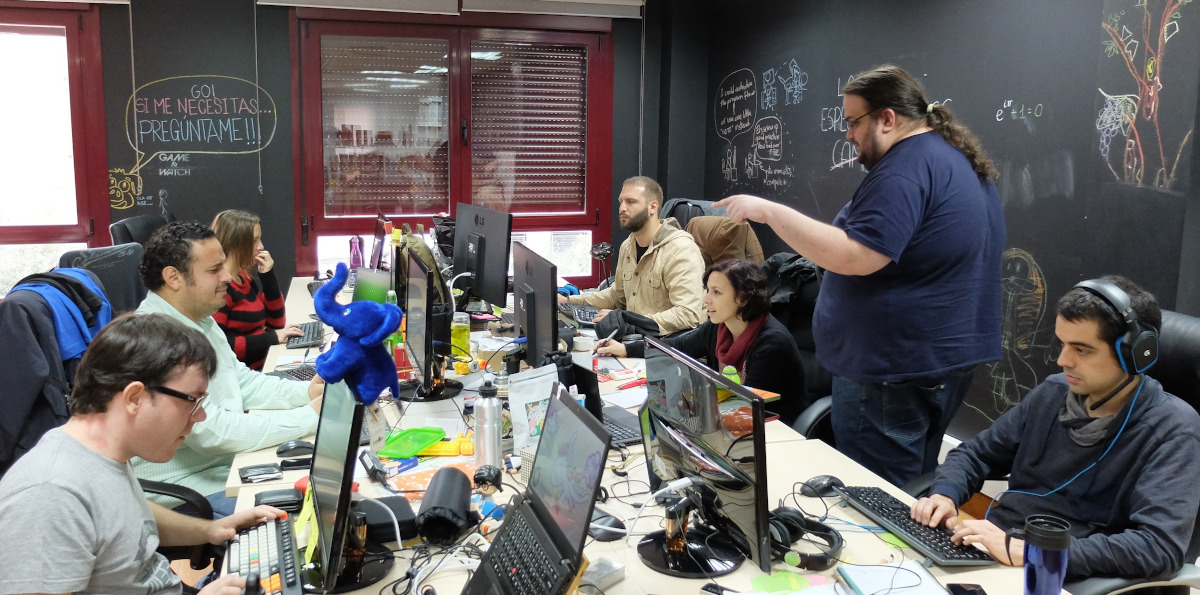
The What
Innovation serves as a nice leap in such progress, instead of just relying on linear and predictable improvements or, worse, serendipitous discoveries. What is also great about innovation is that it often re-levels the playing field for everyone in a virtuous cycle.
At Kaleidos we also use the term Personal Innovation (it’s what PIWEEK stands for). Here we praise individual exploration and learning rather than tangible contributions to the outside world. We also make sure that the process is really enjoyable within an ephemeral team so that you have a fabulous time sorting out those very private challenges now suddenly turned out to be collective.
This innovation, whether it’s personal or collective, points inwards or outwards, can take the form of technology, methodology or project inception. New technology can boost problem solving in a particular niche, improved methodology can be a game changer in team dynamics, sustainability and predictability, and solid project inception can lead to new products or solutions for current pains and challenges or perhaps go beyond the current status quo and foster new opportunities.
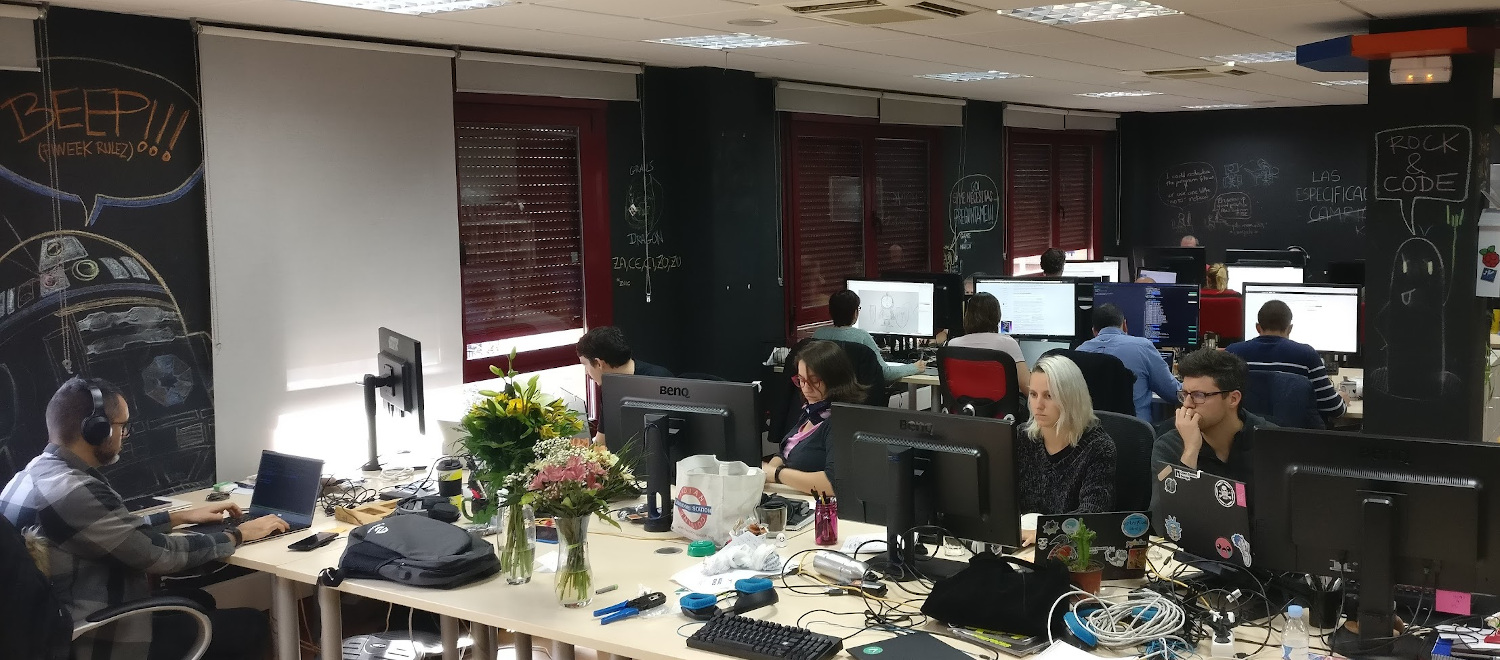
The How
The right context for innovation is such one that sympathises with failure but expects that you go beyond your comfort zone. You do that everytime you learn something that feels quite tough or interact with people with very different backgrounds and skills, but also when you’re facing a challenge for the first time. Now, this challenge can be very personal -it only affects you- or it could be shared across a lot of people or even the whole world. At Kaleidos we try to have a bit of everything.
Challenging projects: We have a policy of not accepting projects that are not going to put us under some pressure. It could be the technology, the industry or the project dynamics, but there has to be a strong feeling of excitement coming from a nice share of known unknowns.
Mid-size projects, transfer, move on: We have found projects lasting between one and two years (team size ranging from 5 to 10) to be ideal for exploration and coming out victorious. Our project handover protocol also forces us to conceive a sustainable development beyond our reach.
Kaleidos PHIDays, KUXUIs and conferences: Sharing is caring, it’s often said. We care about ourselves and every year we host an internal 2-day conference where all speakers are kaleidos employees. We explore new topics and we discuss them with a very engaged and friendly audience. It also serves us well for rehearsing before other conventions arrivals. KUXUIs are Visual Design oriented regular constructive feedback sessions.
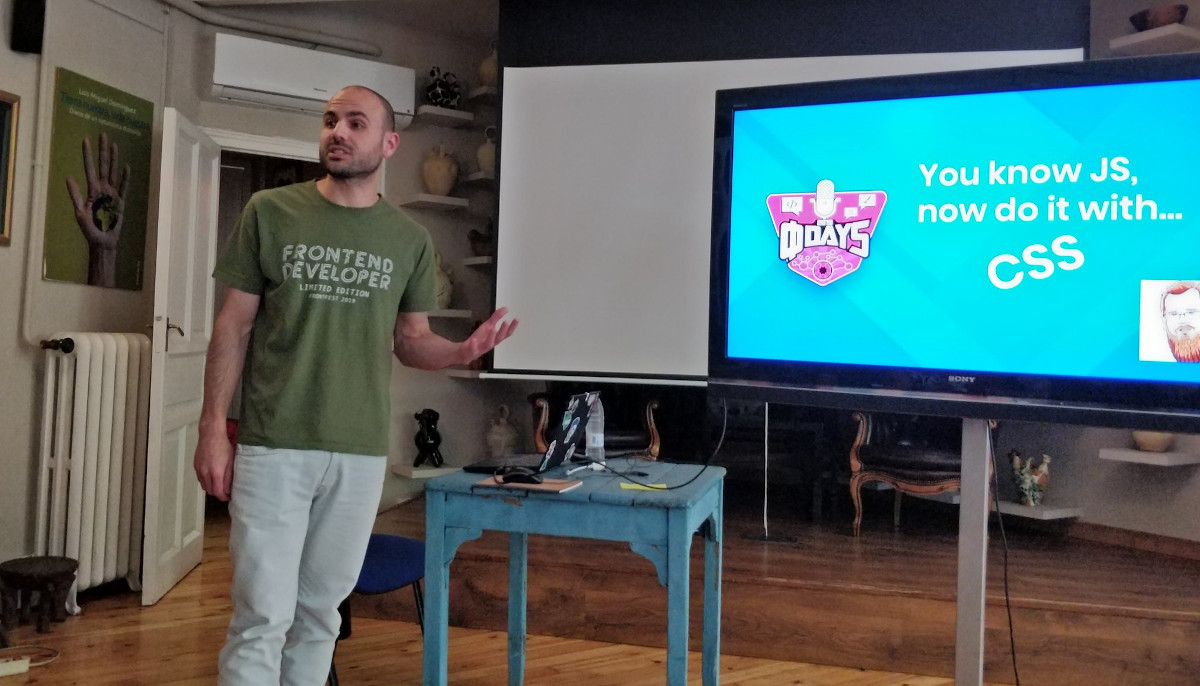
- PIWEEK (Personal Innovation Week): one of our most distinctive features as a company. Every six months participants leave their ongoing work in standby to devote an entire week to personal innovative projects, either alone or joined by others. It’s not uncommon that after such PIWEEKs (18 so far at the time of writing), people emerge both exhausted and transformed. You’d be surprised how much can be achieved in one week where your motivation is off the charts.
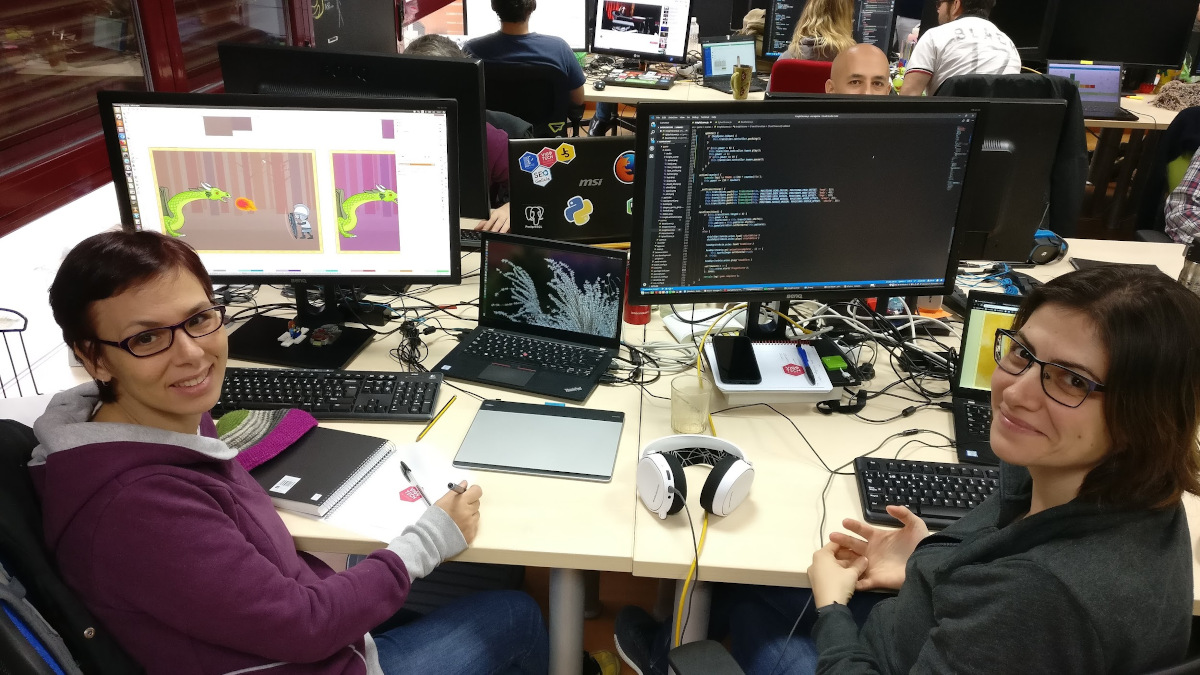
- Kaleidos startups: While the vast majority of PIWEEK projects remain private endeavours, some become self-sustained products that can become Kaleidos startups. TAIGA, the best open source agile project management platform and UXBOX, the next-gen design and prototype tool for cross-domain teams, are fine examples of this. Through our own startups, we are able to experiment and innovate with absolute complicity around technology, product and business models.
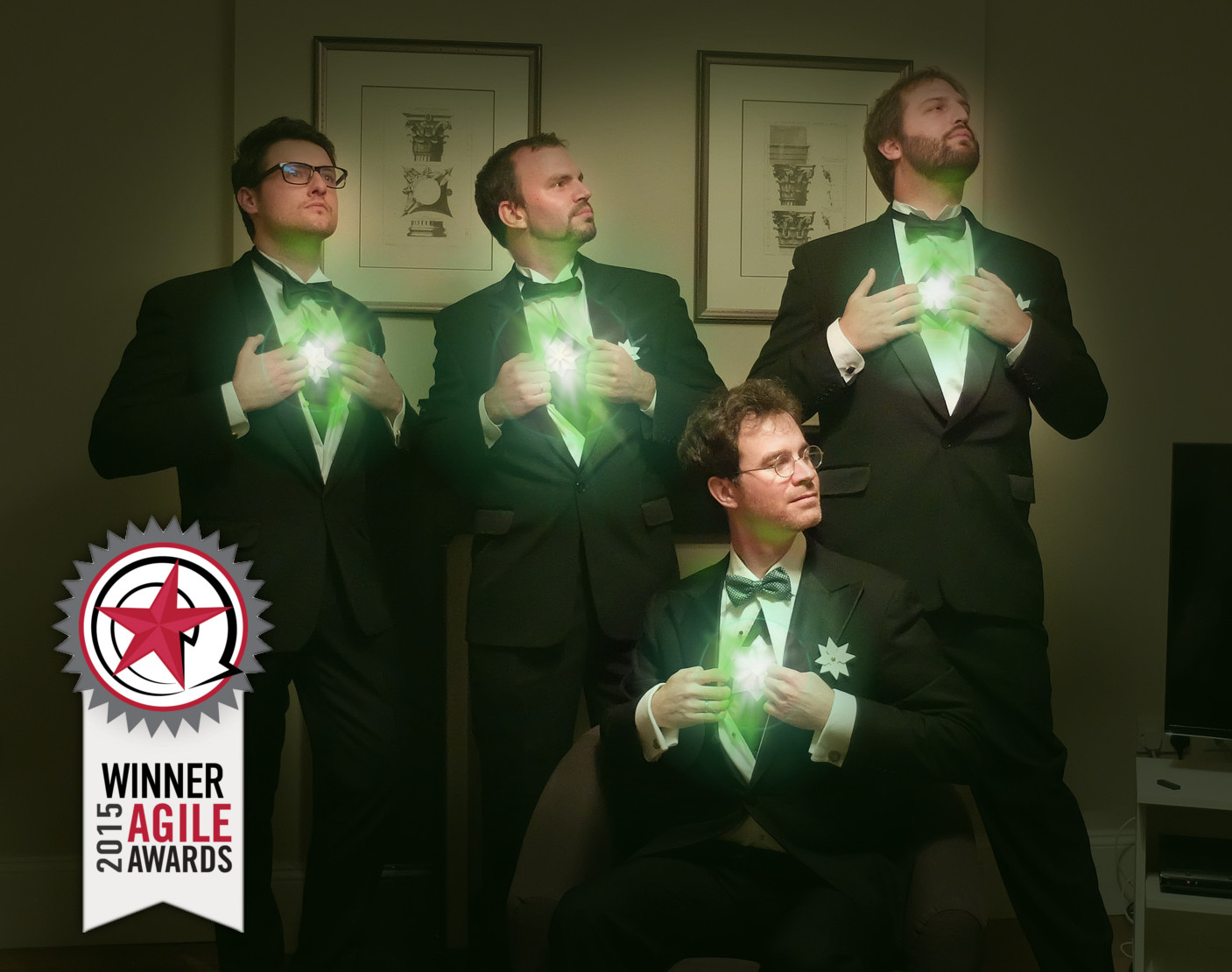
Final comments
We don’t believe we are that special. But our commitment to innovation is not timid, it’s part of our ethos and that is, unfortunately, not that common. We encourage other organizations to seriously consider an open innovation model that matters to their employees as well as their role in society.
Feel free to adopt or adapt what you have seen here. No need to overthink it, start somewhere and be ready to make changes.
